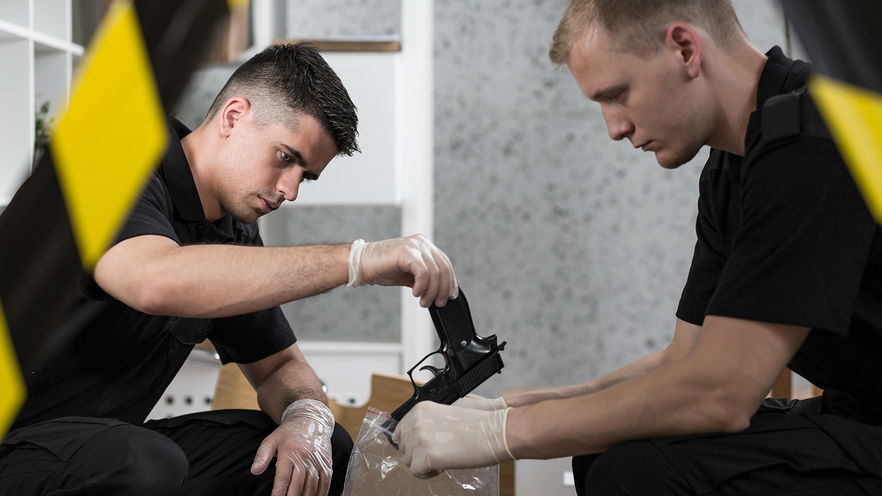Not every inmate in a New York state prison will become eligible for an early release – also called “parole” – and those inmates who do become eligible will face terms and conditions of parole that are deemed necessary to protect the public.
In New York, if you are charged with any felony, it will be imperative for you to obtain – as quickly as possible – the advice and services of an experienced Long Island parole violation attorney.
A parole board must approve a New York prison inmate’s early release. Parolees then serve the remainder of their sentences in their communities and under the supervision of parole officers.
WHAT ARE “INDETERMINATE” AND “DETERMINATE” SENTENCES?
Felony sentences in this state are “indeterminate” or “determinate.” A determinate sentence is usually imposed after a defendant is convicted on a violent felony charge.
Determinate sentences are fixed periods of time that must be served by a felony offender in a state prison.
Indeterminate sentences, however, set a maximum and minimum amount of prison time that must be served.
The minimum term for an indeterminate sentence cannot be less than one year, and the maximum term cannot be less than three years. A felony inmate may qualify for parole after serving the minimum time required by his or her indeterminate sentence.
WHAT HAPPENS WHEN AN INMATE IS APPROVED FOR PAROLE?
When a convicted felon is released from a New York prison and approved to serve parole, that person will have to sign some documents agreeing to the conditions and terms of parole.
The conditions of parole, according to the New York Department of Corrections and Community Supervision, “are rules which you must follow while under supervision. Conditions are furnished in writing to you and are explained by a Parole Officer.”
Parolees must sign that they have been given and have read a copy of their parole conditions, that they understand the parole conditions, and that they intend to comply with those conditions.
WHAT ARE THE USUAL CONDITIONS FOR PAROLE IN NEW YORK?
In exchange for early release, the state expects compliance with a variety of quite strict rules and requirements. Conditions of parole vary in each case but usually include:
1. adhering to a curfew
2. avoiding contact with known criminal associates
3. earning a diploma or GED or taking vocational training
4. seeking and maintaining employment
5. reporting regularly to a parole officer
6. submitting to warrantless searches and to random drug testing or polygraph testing
7. not purchasing, possessing, or using illegal narcotics, firearms, or other specified items
Offense-specific conditions of parole may also be imposed. A DWI offender, for example, may be ordered to place an IID device in his or her personal vehicle, and certain sex offenders must avoid locations, such as parks and playgrounds, where children typically congregate.
WHAT SHOULD YOU DO IF YOU ARE CHARGED WITH A PAROLE VIOLATION?
The violation of any parole condition can have severe consequences, including a return to prison. If you are a parolee charged with violating any condition of parole in the state of New York, you must be advised and represented by a parole attorney.
When a New York parole officer reasonably believes that a parolee has committed a parole violation, the Board of Parole can issue an arrest warrant, and the parolee will also be served with two additional documents:
1. A Violation of Release Report specifies what violation the parolee is charged with committing.
2. A Notice of Violation explains the parolee’s legal rights and specifies the date, time, and location of the preliminary parole violation hearing.
If you are a parolee in New York accused of violating a condition of your parole, you must seek a parole attorney’s advice and representation before a preliminary parole violation hearing.
You must act at once, because that preliminary hearing will be scheduled within fifteen days of the arrest.
WHAT HAPPENS AT A PRELIMINARY PAROLE VIOLATION HEARING?
A preliminary parole violation hearing does not decide an accused parolee’s innocence or guilt. Instead, the evidence is weighed to determine if the state has probable cause to proceed against the accused.
However, a qualified parole attorney can aggressively challenge the evidence offered at the preliminary hearing and seek to have the parole violation case against you dismissed.
If probable cause is nevertheless found by the court, a final hearing will be scheduled within ninety days, but your attorney may be able to have the case continued beyond that deadline if necessary.
WHAT HAPPENS AT A FINAL PAROLE VIOLATION HEARING?
At a final parole violation hearing, your attorney will present evidence to defend you against the parole violation charge. If you are acquitted, your parole will probably continue under the same conditions. If you are convicted, a return to a New York state prison is a genuine possibility.
No one should be confused about the difference between probation and parole in the state of New York. Probation allows a convicted criminal defendant to stay in his or her community without serving time in prison.
Parole is the early release of a felony inmate from a New York state prison. Under both parole and probation, a convicted offender must obey court-ordered terms and conditions.
IF YOU ARE CHARGED WITH ANY CRIME, WHAT SHOULD YOU DO?
Of course, you will not serve any probation or parole unless you have been convicted of a crime, so a criminal conviction is what you want to avoid. Any criminal conviction establishes a criminal record and entails long-term consequences – both personal and legal.
If you are charged with any crime in the Long Island or New York City area, politely exercise your right to remain silent, and do not try to act as your own lawyer. New York’s laws are too complex – and the penalties for a conviction are too harsh – to take that kind of risk.
Instead, if you are charged with any crime, in New York City or on Long Island, get the legal advice and defense representation that you will very much need, and consult at once with an experienced criminal defense attorney. That is your right.















Comments are closed.